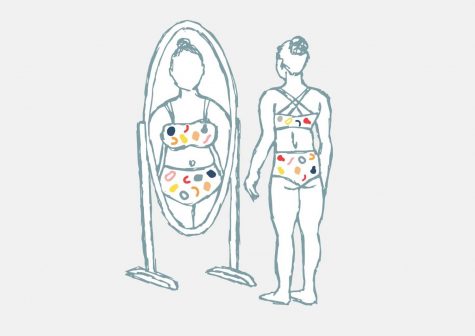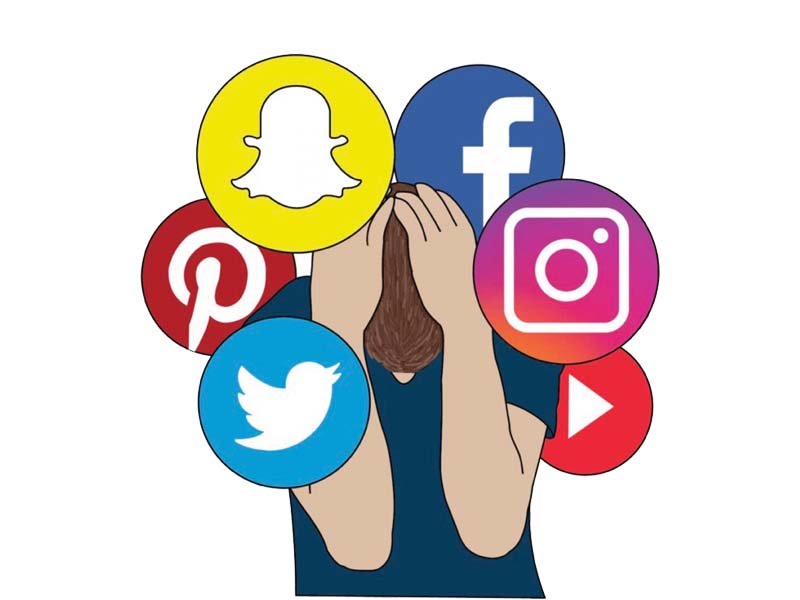Body Image and Social Media
Social media has become a cornerstone of today’s culture, especially for teenagers. However, the negative effects of social media have recently come to light after a whistleblower announced that Facebook has been doing studies on the impact of social media on teens. Their results, which they hid from the public, were startling. Toxic messages about body image and general peer pressure arose, and these messages have had dire consequences including an increase in suicide rates.
Recently, Facebook was put under fire after being called to a congressional hearing about the harmful effects of the company. A whistleblower, Frances Haugen, shed light on research that Facebook had been withholding about the ill effects the company has had on hate amplification, misinformation, political unrest, and the harm that Instagram causes teen girls, CBS reports. The documents Facebook had been withholding appeared in the Wall Street Journal in September. At the beginning of October, Haugen’s identity was revealed as the Facebook whistleblower.
Some of the most concerning information released from the files was the harmful effects Instagram, and social media in general, have on teenagers. One of the slide presentations from Facebook stated that “Thirty-two percent of teen girls said that when they felt bad about their bodies, Instagram made them feel worse.” Another slide said that “[Instagram makes] body image issues worse for one in three teen girls.” These statistics in and of themselves are concerning, but when considered together with body image issues, lead to a much larger problem. The Guardian reported that “three-quarters of 14-year-old girls who suffer from depression also have low self-esteem, are unhappy with how they look, and sleep for seven hours or less each night [because of social media].”
When Kevin Mancini, a counselor at Albuquerque Academy, was asked about the accusations against social media, he said that many of the issues stem from the isolation that online interaction creates. Furthermore, “When you isolate, you’re going to hurt your self-worth,” Mancini stated. “When you’re trying to be approved of through social media, you’re putting yourself in a dangerous spot.” These issues are most commonly noticed in teen girls; however, boys are also heavily affected by social media, Mancini said. “Just like girls are pushed to be the ideal feminine person, I think that [social media] forces boys to fall into that masculine script as well.”
Social media began as a way for friends and family to connect more, but the effects of social media, particularly on teens, have actually led to more seclusion. Isolation and loneliness are increasing tremendously because of social media and the semblance of interaction it creates. A study from The Mayo Clinic found that teen girls felt a decrease in life satisfaction and were envious of others’ lives. Content, such as a photo on social media, is generally very heavily edited, so when teens compare themselves to the fake life of others, it creates unrealistic expectations and is consequently setting the viewer up for disappointment.
Originally, social media was a means to an end. However, it is obvious that the online environment that has arisen because of social media has become toxic for many. Facebook has become a company obsessed with power, and that obsession outweighs the values of humanity. Frances Haugen drew attention to this, but what harms have already been done to the teenage population? Since social media was introduced, anxiety and depression have increased and peer pressure and bullying have a new outlet. Social media has had many widespread benefits, but at the end of the day, the negative effects have become increasingly prevalent in today’s society.


A member of The Advocate since 7th grade, Elizabeth enjoys writing news, school and local, and arts and culture articles. She can't wait to help writers...








Patricia Lincoln • Nov 10, 2021 at 3:31 pm
Topical & well summsrized for audience